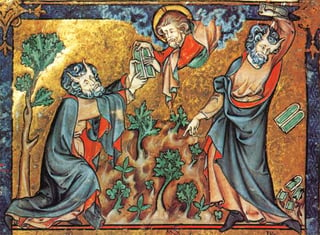I often hear that the Latin Vulgate has many inaccuracies of translation.
I often hear such criticism from Protestant circles; this (or the relative lack of such discourse among Catholics) might have to do with the role the Latin language and the Vulgate plays within the Roman Catholic church. I have to say this give proper context, but please avoid political discussion (and feel free to improve the wording of the question); some listings on the internet seem rather hot-headed. Naturally, the question of the "best translation" is a perennial one, and translation criticism is common for many Bible translations, no matter what denominations they are used in.
Back to the question: I would like to learn more about (real or alleged) errors or inaccuracies in translation in the Vulgate.
- Where is the best place to look? Are there any compilations or published discussions?
- What are the most common examples (of alleged translation mistakes) cited in discussions of criticism of the Vulgate?
- There is a reason the Nova Vulgata was commissioned and published. What criticism of the Vulgate would still apply to the Nova Vulgata?

